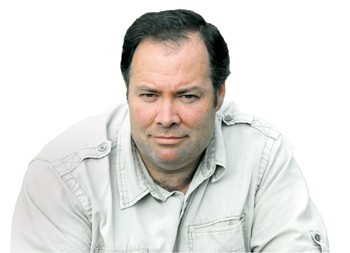In order to protect our wildlife, shooters and the RSPB need to work together

So, one animal rights group has resorted to flogging property assets (News, 18 August). And the antis? attempts to manufacture public outrage on or about the start of the grouse shooting season was a miserable failure. Against the acres of interesting, informative and factually accurate coverage of grouse issues instigated by the Moorland Association and the Game & Wildlife Conservation Trust, all that the depleted ranks of antis could muster were a few silly letters and a spectacularly unexciting video of lowland gameshooting in the snow. (Yes, snow ? how?s that for topicality?)
The most substantial threat to shooting, in terms of legislation, doesn?t come from professional antis, nasty as they are. It comes from a sub-set of professional conservationists, who want the State to control every aspect of our lives, and from certain political survivors from the previous government, some of whom still occupy infl uential posts on select committees and the like. But what about the RSPB? This organisation is the most powerful ?conservation? body in Western Europe. It has massive financial resources and huge influence. But is it really an enemy of ours? Many think that it is.
In my view, it is a great pity that we shooters don?t have a better relationship with the RSPB (or rather, vice versa). Historically, there was indeed a reasonably good relationship, back in the days when the RSPB needed the co-operation of landowners. This changed as the charity ballooned in size and became ever-more populist. As its membership grew, the RSPB seemed to play to a lower common denominator. There are many things about the RSPB that I have to criticise: its ridiculous overemphasis on raptors; its (decreasing, admittedly) penchant for broad-brush denigration of gamekeepers; its denial of the value of predator control while it quietly kills foxes and crows on some of its reserves… all that, and more. Yet, I would much rather deal with the RSPB than any animal rights organisation. Sorry if that causes you to choke over your pint of real ale, but hear me out.
Those of us who shoot have a lot more in common with RSPB types than we have apart. Both sides value the countryside and its wildlife, and are prepared to take active steps to aid conservation. By contrast, when did you last hear of an animal rights group planting woodland?
For that matter, how many animal rights groups take large stands at The CLA Game Fair? Love them or loathe them, you can at least talk to senior RSPB people. At least once a year, they enter the lion?s den and make themselves accessible. Frankly, they deserve respect for that. If we don?t agree with some of the RSPB?s actions, then at least you can say so to some of the top bods in person. Just join the queue. But the RSPB is under various forms of pressure these days. Many UK bird species continue to show a relentless decline, despite all the improvements in habitat. The brutal fact is that the RSPB, in its role as self-appointed guardian of UK birds, has presided over the biggest decline in bird populations in recorded history. And it has belatedly realised that producing good results on small patches of land cannot be used as a model for the wider countryside.
When recent figures showed a sharp fall in kestrel numbers over the past two years, the knee-jerk reaction was to blame intensive farming. Yet there has been no intensifi cation of farming recently ? quite the reverse, in fact. So, what is going on?
Too many foxes and crows, some would say. As the plight of British birds continues, the RSPB itself might ? just might ? have to start telling its members a few things they don?t want to hear about maintaining a balance in a heavily modifi ed ecosystem such as ours. Who knows, one day the RSPB might even run a ?straight? piece about gamekeepers in its membership magazine.








